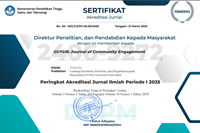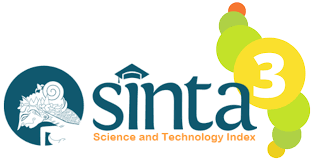Implementation of an Interactive Chatbot System Using ChatGPT and Leonardo AI to Support Islamic Studies Teaching for MI Teachers
(1) * Imro Atus Soliha
 (Institut Ahmad Dahlan Probolinggo)
(Institut Ahmad Dahlan Probolinggo) Indonesia
(2) Yulina Fadila (Institut Ahmad Dahlan Probolinggo)
Indonesia
(*) Corresponding Author
AbstractThis community engagement project facilitated the integration of interactive AI-based chatbot technologies, namely ChatGPT and Leonardo AI, into Islamic Religious Education at Madrasah Ibtidaiyah (MI) in Probolinggo City. The program aimed to enhance teaching quality by empowering teachers through intensive training based on the Participatory Action Research (PAR) approach, which included four key stages: planning (identifying digital literacy and instructional challenges), action (hands-on training in AI tools), observation (monitoring classroom implementation), and reflection (evaluation and feedback). ChatGPT effectively supported teachers in generating quizzes, assessments, and text-based materials, while Leonardo AI enabled the creation of engaging visual learning media. The results revealed a significant improvement in teachers' digital competencies, reflected in increased creativity, confidence, and autonomy in developing AI-based instructional content. This was evidenced by reflective journals, focus group discussions, and performance assessments, with 82% of participants showing measurable progress post-training. Despite challenges such as limited internet access and digital infrastructure, teachers demonstrated strong enthusiasm and adaptability. The program recommends continuous mentoring and the enhancement of digital infrastructure to ensure the sustainability of AI-driven educational transformation at the elementary madrasah level |
Keywords
Full Text: PDF
Refbacks
- There are currently no refbacks.
Copyright (c) 2025 Imro Atus Soliha

This work is licensed under a Creative Commons Attribution-ShareAlike 4.0 International License.
This journal is licensed under

Creative Commons Attribution-ShareAlike 4.0 International License.








.png)
